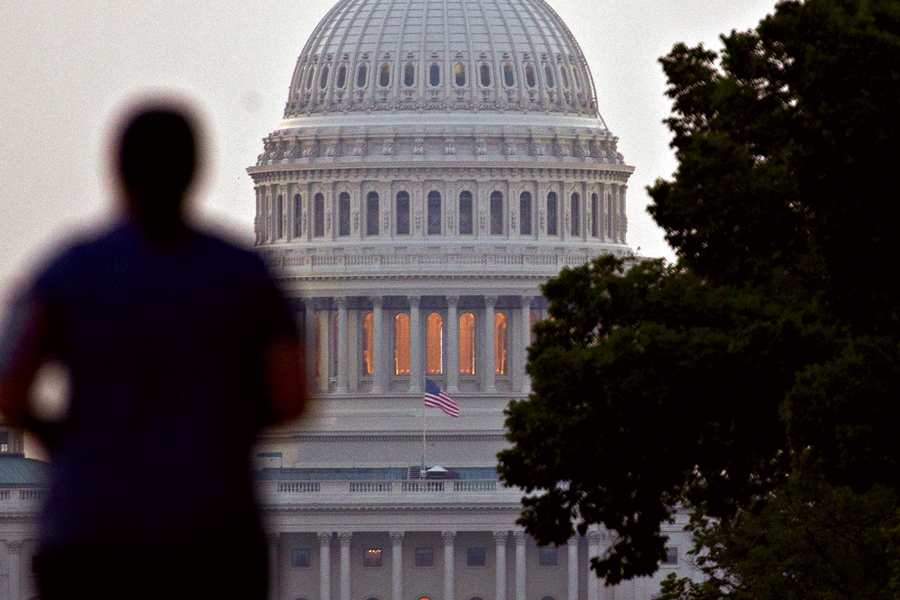Insurance trade associations are set to launch a campaign to gain approval for retirement-savings bills by August to ensure they don't stall again as attention turns to the 2020 election.
The American Council of Life Insurers is coordinating with AALU (formerly known as the American Association of Life Underwriters), the National Association of Insurance and Financial Advisors and the Insured Retirement Institute to host a series of Capitol Hill lobbying days from April 30 to May 15.
The goal is to get a
vote on the House floor under special fast-track rules in May for the
Setting Every Community Up for Retirement Enhancement Act, or SECURE. The bill contains many of the same provisions as the Retirement Enhancement and Savings Act, or RESA, which has been introduced in the Senate.
Among other provisions, SECURE would make it easier for small businesses to band together to offer retirement plans to their employees, provide legal protections for employers to include annuities in those plans, require benefits statements to include projections of lifetime income and increase the age for required minimum distributions from 70.5 to 72.
Advocates want to get Senate approval by the end of the summer to ensure it is squared away before the ramp-up to the 2020 election causes a legislative slowdown.
"Getting RESA over the finish line is the No. 1 priority," said ACLI president and chief executive Susan Neely. "We're all on a mission to get this through the House in May and the Senate in the summer. If it doesn't get done by August, it will be another delay."
Last year, the insurance groups pushed to get the legislation
approved in the lame-duck session of Congress, but fell short and had to try again this year.
ACLI members had sent 15,000 letters to lawmakers and ran a digital campaign that targeted Hill staffers. Ms. Neely said ACLI has told the key figures on SECURE/RESA passage — House Ways & Means chairman Richard Neal, D-Mass., and Senate Finance chairman Charles Grassley, R-Ia. — it is ready to "trigger" the grassroots advocacy again.
Over the next few weeks, ACLI and IRI will collaborate on 50 meetings with House lawmakers and staff, said IRI president and chief executive Wayne Chopus. He will highlight
a recent IRI report showing that 45% of people over 65 don't have any retirement savings.
"There are a lot of eye-popping statistics that continue to come out that carry weight on the Hill," Mr. Chopus said. "There's bipartisan support for [addressing] the retirement crisis."
That support has been built in part by the muscle and money of the insurance lobby. In the last election cycle, ACLI made $1.1 million in political campaign contributions, according to the
Center for Responsive Politics. It also spent $3.6 million on lobbying last year.
NEW LEADERSHIP
Both Ms. Neely and Mr. Chopus took the helm of their respective organizations this year.
Ms. Neely, 62, said part of her mandate is for ACLI to advocate for solutions to problems, such as eroding retirement security, rather than simply pointing out how bills might hurt the industry.
"All trade associations are going through a transformation to think about advocacy differently," said Ms. Neely, a former George W. Bush administration homeland security official and former head of the Health Insurance Association of America. "As an industry … we're going to provide leadership around closing the retirement savings gap."
The IRI turned to Mr. Chopus, 47, as its leader, in part because he was an official for about 25 years with Prudential and The Hartford. He brings an industry practitioner's perspective to lobbying and got to know more about public policy through leading Prudential's response to the Department of Labor's
now-defunct fiduciary rule.
"That did give me a very clear lens into the importance of the work done on the Hill and how that impacts the end client," he said.
BORZI OBJECTS
For the most part, the retirement-savings bills have not generated controversy. But the annuities safe harbor provision draws criticism from the architect of the DOL rule, former assistant labor secretary Phyllis Borzi.
Ms. Borzi said the provision is too permissive on the range of annuities it allows, including variable and fixed indexed. She said it should be limited to deferred, immediate and longevity annuities.
It is a "complete sellout to the insurance industry," Ms. Borzi said. "It's disappointing but not surprising it has bipartisan support. It's symptomatic of how powerful the insurance lobby is."
Elizabeth Kelly, former special assistant for economic policy under President Barack H. Obama, also said the annuity safe harbor is too broad.
But she supports other parts of the legislation, such as the provision making it easier for small firms to sponsor retirement plans, changing required minimum distribution rules and allowing part-time employees to join plans.
"There are a lot of things that were Obama administration budget proposals that I'm glad to see in the legislation," said Ms. Kelly, who is now senior vice president for operations at United Income.







